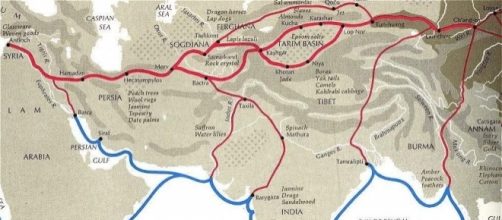Chinese President Xi Jinping wants to throw a challenge to America, the leader of the world economy. He wants to redefine the Silk Road of Marco Polo and bring it at par with requirements of the world of today. His ambitious dream is to make Beijing the epicenter of future world Trade and to meet his objective, he is hosting the Belt and Road Initiative (BRI) Summit. This is a $1 trillion venture and its plan envisages connecting more than 100 countries directly to Beijing by every possible means of communication from roads to airports.
Xi Jinping wants to offer trade windows to other countries who want to do business with China and show to the world that he wields more power to become the leader of the world economy.
Who will benefit from BRI?
Fox News reports that Russian president Vladimir Putin is one of the important leaders who will attend the BRI. Apart from him, others who are expected to attend are leaders from countries who are keen to exploit the opportunities that the new Silk Road will offer. However, the United States does not attach too much importance to this initiative of China.
From Xi Jinping’s actions, it is evident that he wants to take over worldwide economic leadership from the United States by inducing other countries to engage in trade with China which will offer them an easy access to its huge consumer market. In the opinion of an expert associated with the Institute for China-America studies, Xi is making use of the soft power to transform China into the leader of the world economy.
He is dangling carrots in the form of trade incentives to countries that want to modernize their economies. A few examples of his offers are - to build a port in Pakistan, complete a China-to-Myanmar pipeline which will have access to Middle East crude oil, and dredge and deepen the port of Piraeus in Greece.
How effective will be the concept?
Xi Jinping is hopeful that the Belt and Road Initiative (BRI) Summit will show him up as a global leader before the 19th congress of the Communist Party. He is head of the party and has to balance his domestic commitments.
Of course, he has a rider – he wants the heads of state, who attend the summit, to sign a joint communique which will endorse the claims of Beijing that Taiwan is a part of China.
A second aspect is about China’s legitimate territorial rights in the South China Sea. These are sensitive and long pending issues and the world will have to wait and watch the reaction of those who attend the summit.
The concept of a redefined Silk Road is a novel one and might impress developing nations and those who are like-minded but proof of its effectiveness can come only later. There is bound to be hurdles in its path and today’s journey on this road may not be as smooth as it was in the times of Marco Polo.


